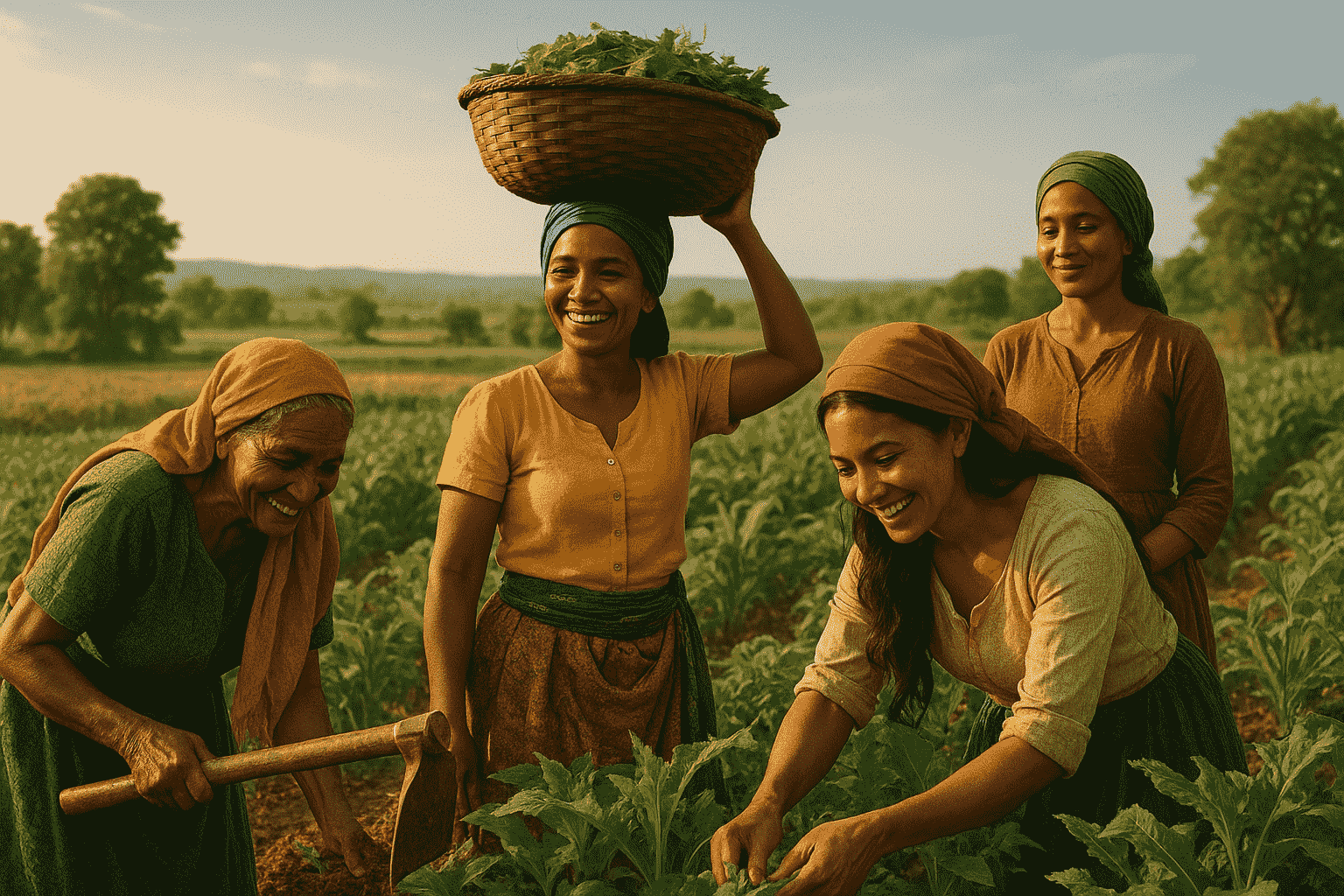The role of women in rural development is both pivotal and transformative, encompassing social, economic, environmental, and cultural dimensions that collectively shape the fabric of rural life. In many parts of the world, particularly in developing countries, rural women form the backbone of agricultural labor, household management, and community cohesion. Their contributions are fundamental to food security, economic stability, and sustainable development. Women in rural areas are often responsible for a majority of the agricultural labor, especially in subsistence farming. They plant, weed, harvest, and process crops while also taking care of livestock. Despite their immense contributions, women often face systemic challenges such as limited access to land ownership, credit facilities, education, technology, and decision-making processes. These limitations not only hinder their personal growth but also constrain the overall potential of rural communities to thrive.
Nonetheless, empowering rural women through inclusive policies, education, and equal opportunities can yield substantial benefits for rural development. They often spearhead informal education efforts, pass down traditional knowledge, and act as caregivers, all of which play a crucial role in the social fabric of rural societies. Their involvement in community-based organizations, self-help groups, and cooperatives has led to better health outcomes, increased literacy rates, and stronger local economies. Women-led initiatives in areas like microfinance and small-scale enterprises have also proven to be remarkably successful in poverty alleviation.
Through tailoring, handicrafts, food processing, and eco-tourism, women have created income-generating opportunities that improve household livelihoods and reduce dependency on seasonal farming. Furthermore, rural women are essential participants in environmental stewardship. Women with access to health care and reproductive services can better manage family planning, reduce maternal and infant mortality, and participate more fully in the economy. Education equips women with the tools to make informed decisions, advocate for their rights, and participate in leadership roles. Yet, in many rural settings, gender disparities in access to education persist due to socio-cultural norms, early marriage, and poverty. Addressing these issues through targeted interventions such as scholarships, awareness programs, and community engagement is vital. Moreover, political participation of rural women is another area where significant progress can enhance development outcomes. Women’s voices in local governance, village councils, and development planning ensure that policies reflect the needs and aspirations of the entire community, not just half of it. When women are empowered to lead and make decisions, it leads to more inclusive, accountable, and transparent governance.
Moreover, addressing the unpaid care work burden that disproportionately falls on women is key to their full participation in development. Time poverty, resulting from responsibilities such as cooking, cleaning, child-rearing, and elder care, limits women’s ability to pursue education, employment, or political participation. Introducing labor-saving technologies, investing in rural infrastructure such as clean water and energy, and promoting shared responsibilities in households can significantly alleviate this burden. The intersectionality of gender with other forms of marginalization such as caste, ethnicity, and disability must also be recognized in rural development strategies.
Women from marginalized communities often face compounded disadvantages and need tailored interventions to ensure equitable access to opportunities. The role of women in rural development, therefore, cannot be viewed in isolation but must be integrated into broader efforts of gender equality, poverty reduction, and sustainable development. International frameworks such as the Sustainable Development Goals. Achieving these goals in rural areas requires sustained political commitment, adequate funding, and strong monitoring mechanisms to track progress and address gaps. Ultimately, the development of rural communities hinges on recognizing and valifying the contributions of women not as beneficiaries or passive recipients of aid, but as active participants and leaders in their own right. When rural women are empowered, they uplift entire families and communities, catalyzing a ripple effect of positive change. Their resilience, creativity, and commitment are indispensable assets in building a just, equitable, and prosperous rural society.
– Dr. Priyanka Singh, Assistant Professor
Humanities and Social Sciences, Madhav University

